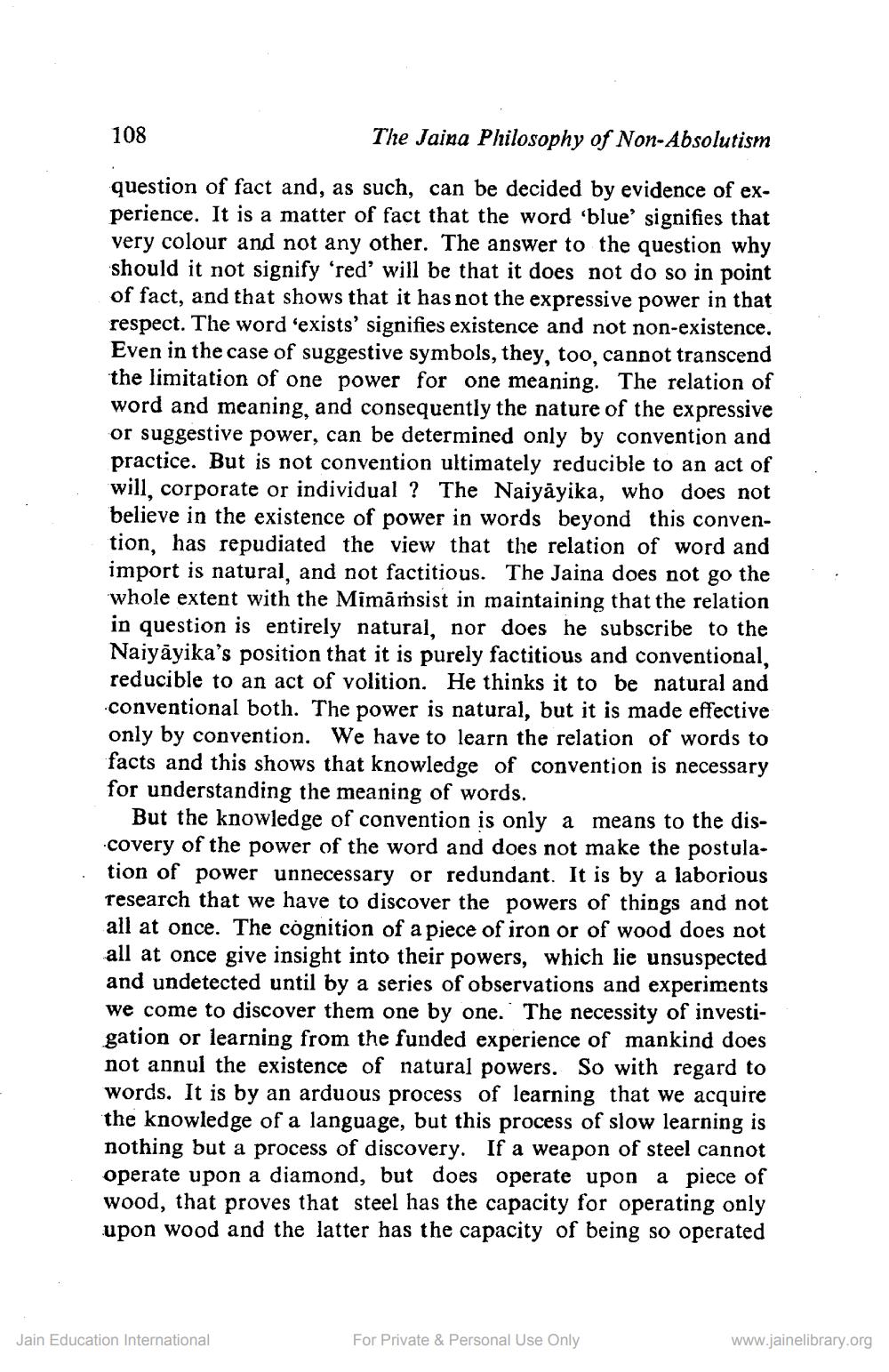________________
108
The Jaina Philosophy of Non-Absolutism
question of fact and, as such, can be decided by evidence of experience. It is a matter of fact that the word 'blue' signifies that very colour and not any other. The answer to the question why should it not signify ‘red will be that it does not do so in point of fact, and that shows that it has not the expressive power in that respect. The word 'exists' signifies existence and not non-existence. Even in the case of suggestive symbols, they, too, cannot transcend the limitation of one power for one meaning. The relation of word and meaning, and consequently the nature of the expressive or suggestive power, can be determined only by convention and practice. But is not convention ultimately reducible to an act of will, corporate or individual ? The Naiyāyika, who does not believe in the existence of power in words beyond this convention, has repudiated the view that the relation of word and import is natural and not factitious. The Jaina does not go the whole extent with the Mimāmsist in maintaining that the relation in question is entirely natural, nor does he subscribe to the Naiyāyika's position that it is purely factitious and conventional, reducible to an act of volition. He thinks it to be natural and conventional both. The power is natural, but it is made effective only by convention. We have to learn the relation of words to facts and this shows that knowledge of convention is necessary for understanding the meaning of words.
But the knowledge of convention is only a means to the discovery of the power of the word and does not make the postulation of power unnecessary or redundant. It is by a laborious research that we have to discover the powers of things and not all at once. The cognition of a piece of iron or of wood does not all at once give insight into their powers, which lie unsuspected and undetected until by a series of observations and experiments we come to discover them one by one. The necessity of investigation or learning from the funded experience of mankind does not annul the existence of natural powers. So with regard to words. It is by an arduous process of learning that we acquire the knowledge of a language, but this process of slow learning is nothing but a process of discovery. If a weapon of steel cannot operate upon a diamond, but does operate upon a piece of wood, that proves that steel has the capacity for operating only upon wood and the latter has the capacity of being so operated
Jain Education International
For Private & Personal Use Only
www.jainelibrary.org




